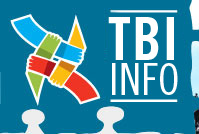You are here : Home > Library > Experiences, perspectives, and needs of patients and their close (...) > 2000 > Minnes, P., Graffi, S., Nolte, M. L., Carlson, P., & Harrick, L. (...)
Minnes, P., Graffi, S., Nolte, M. L., Carlson, P., & Harrick, L. (2000). Coping and stress in Canadian family caregivers of persons with traumatic brain injuries. Brain Injury, 14(8), 737-748.
The purpose of this study was to document the stresses reported by Canadian caregivers of persons with brain injuries and to consider the factors which serve to mediate or moderate such stress. Highest stress scores on the Holroyd Questionnaire on Resources and Stress-Short Form (QRS) were associated with Lifespan Care and Personal Burden. Although overall burden as reported on the QRS by parents and spouses did not differ from other studies, it did differ somewhat for specific types of burden. Social Support and Spiritual Support, as measured by the F-COPES, fell within the medium use category, and scores for Reframing, Mobilizing and Passive Appraisal fell within the high use category. In multiple regression analyses, client competency as measured by the Patient Competency Rating Scale emerged as a major predictor of stress associated with Cognitive Impairment, Physical Limitations, Lifespan Care, Terminal Illness Stress, Limits on Family Opportunities, and Personal Burden. In contrast, other client characteristics (e.g. Time Since Injury) accounted for relatively little variance. The results also indicate that both Reframing and Seeking Spiritual Support as coping strategies can make an important contribution to stress reduction.
Terms of Use | 2007-2008 All rights reserved © INFO-TBI. Graphic design : François Ménard | Design : WebConforme

